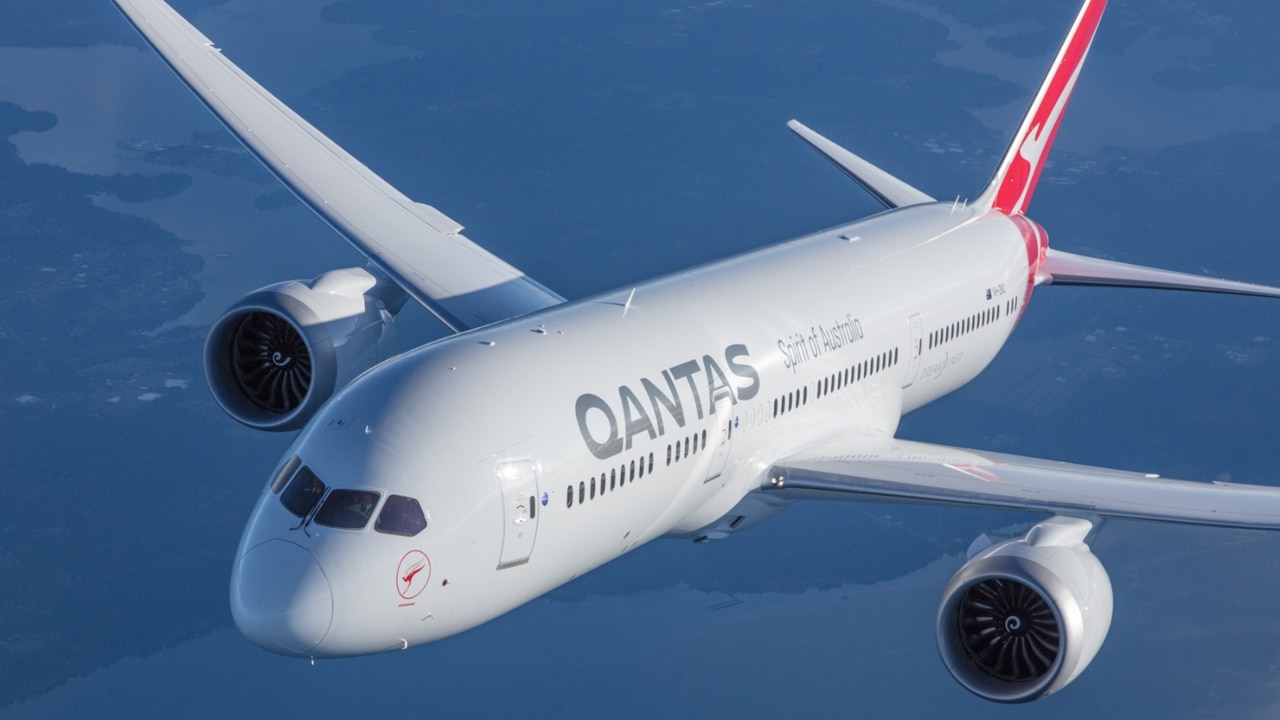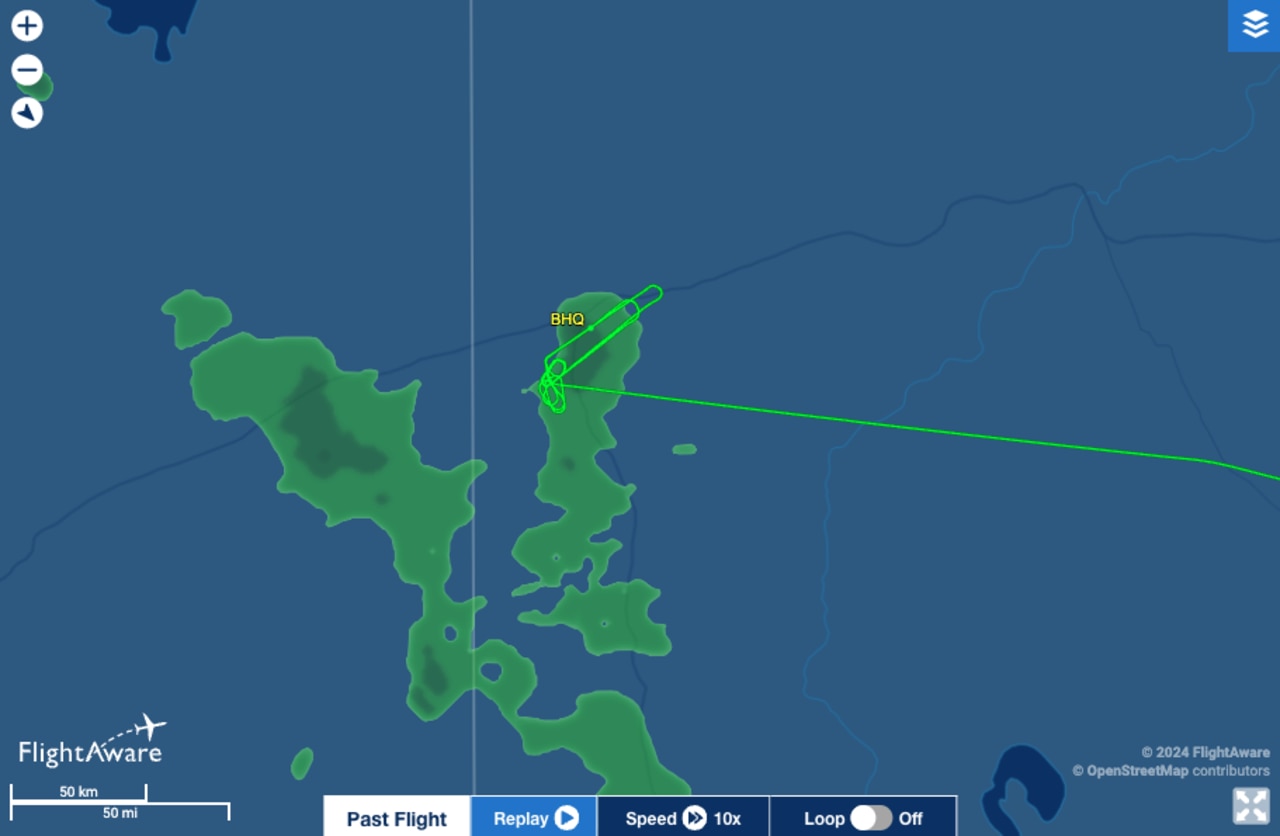Qantas battles ACCC lawsuit, increasing new fleet costs and Qatar bid rejection fallout
Alan Joyce’s surprise early exit, on top of an unprecedented lawsuit, is the latest crisis to hit the flying kangaroo. Here is the list of battles new chief Vanessa Hudson is taking on.

At a time when Qantas probably expected to be celebrating its biggest profit on record, the airline is in serious damage control amid a series of controversies that has now seen chief executive Alan Joyce bring forward his retirement by almost two months.
Despite the company’s remarkable financial turnaround from $7bn in losses over the past few years, Qantas has found itself struggling to rebuild its image as a much-loved Aussie brand – a job that will now fall to incoming CEO Vanessa Hudson.
Her tenure, starting Wednesday, comes after two bruising parliamentary committee hearings last week, and the Australian Competition and Consumer Commission lawsuit, alleging false, misleading or deceptive conduct. That’s on top of a class action over travel credits, the Qatar Airways controversy political fallout and employee discontent.
Surprise early exit by CEO
Chief executive Alan Joyce has handed over the controls of Qantas early to Vanessa Hudson after weeks of crisis for the airline.
After 15-years as CEO, Mr Joyce has brought forward his retirement by two months in a shock change to help the company “accelerate its renewal,” with Ms Hudson to take over on Wednesday.
The move follows the airline facing its greatest battles yet, ranging from $570m travel credits debacle to a lawsuit by the consumer watchdog for selling tickets for cancelled flights.
“The best thing I can do under these circumstances is to bring forward my retirement and hand over to Vanessa and the new management team now, knowing they will do an excellent job,” said Mr Joyce.
“There is a lot I am proud of over my 22-years at Qantas, including the past 15 years as CEO. There have been many ups and downs, and there is clearly much work still to be done, especially to make sure we always deliver for our customers. But I leave knowing that the company is fundamentally strong and has a bright future.”
Landmark ACCC court case for selling ghost flights
The consumer and competition watchdog has launched Federal Court action against Qantas, alleging the airline advertised tickets for 8000 flights that had already been cancelled but not moved from sale.
The flights in question were scheduled to depart between May and July 2022, and according to the ACCC, Qantas kept selling tickets for an average of more than two weeks after they were cancelled.
ACCC chair Gina Cass-Gottlieb said on Friday she wants Qantas to face a fine of over $250m if the case against the airline succeeds.
She said the high penalty would be a clear way “to deter conduct of this nature” and scare companies that would consider doing the same.
“We think the penalties should be in the hundreds of millions, not tens of millions for breaches”.
The penalty would be more than double the current $125m record penalty a company has received for breaching consumer law.

Treasurer Jim Chalmers said they were “deeply concerning allegations” and the ACCC alleged that for more than 10,000 flights scheduled to depart in that period, Qantas did not notify existing ticket holders their flights had been cancelled.
Qantas, led by Alan Joyce, was treating the allegations seriously and said they would respond in full in court. The airline also highlighted that the time in question was a period of “unprecedented upheaval” for the whole industry.
‘Sweetheart deal’ on Qatar Airways bid
There is a perception that Qantas and the Albanese government worked together to deny Qatar Airways more flights, given the downward pressure they would have placed on airfares.
As yet, there has been no plausible explanation for the decision to refuse Qatar’s application for an additional 28 flights a week.
In its submission to the government, Qantas warned the flights could distort the market at a time other airlines were still in recovery.
Qatar Airways has refused to comment on the matter, but partner Virgin Australia has conveyed its “deep disappointment” and concern that Australians were being denied more international flight options.
Tourism and travel industry operators, exporters and business leaders have also voiced their dismay at the decision, given estimates the flights could have provided a $788m injection to the visitor economy.
$500m flight credit class action

Echo Law launched a class action on behalf of hundreds of thousands of customers who allegedly never received refunds after their flights were cancelled.
After facing relentless questioning from the Senate cost-of-living committee on Monday, CEO of Jetstar Steph Tully was forced to reveal there were $100m in flight credits for the airline that were yet to be claimed.
This figure, as well as the amount held by Qantas customers outside of Australia, was not included in the $370m and Mr Joyce was unable to say what the total value of credits was, but it appeared likely to exceed half a billion dollars.
On Thursday, Qantas announced it would scrap the December 31 expiry date for the credits, saying they had “listened” to customers on the issue.
Fallout over Nathan Albanese’s Chairman’s Lounge invite
Prime Minister Anthony Albanese’s son Nathan Albanese has been deemed worthy of a spot in the exclusive ‘invitation only’ Qantas Chairman's Lounge.
The top-secret list is personally curated by Mr Joyce himself, which includes Australia’s top CEOs, A-list celebrities and politicians.

Mr Joyce was heavily questioned about the decision to provide Mr Albanese’s son a coveted invite into the lounge on Monday’s cost-of-living committee inquiry.
But he insisted the guest list was private.
Eyebrows were also raised as to why the Prime Minister did not declare the membership in his latest statement of registrable interests.
Unions and worker woes
Incoming CEO Vanessa Hudson has indicated she wants to work with unions, which was received well by various employee groups.
The Transport Workers Union, Australian Services Union and Flight Attendants Association of Australia stated industrial relations under Mr Joyce had “sunk to an all-time low.”
The High Court is expected to soon deliver its judgement in the case between the TWU and Qantas over the outsourcing of nearly 1700 ground service workers in 2020-21.
The Federal Court and Full Federal Court both found that Qantas could not prove it was not motivated by a desire to prevent future industrial action, when it made the outsourcing decision. Qantas has claimed the job cuts were purely a commercial decision, intended to save the company over $100m a year.

Fleet renewal cost blowouts to clean up
A major domestic and international fleet renewal being undertaken by Qantas is expected to add well in excess of $15bn to the airline’s capital expenditure — costs that the incoming CEO will have to cover.
Orders for 76 aircraft have now been lodged with Airbus and Boeing, for 24 A350s, 20 A220s, 20 A321XLRs and 12 787-9s.
There are options for another 94 narrowbody aircraft spread over the next decade, which will likely to be taken up as existing Boeing 737-800s are retired.
Deliveries of new A220s are due to start later this year, followed by A321s next year. Widebody A350-1000s should turn up in late 2026, with other double-aisle aircraft touching down from 2027 onwards, replacing ageing A330s and eventually Qantas’s A380s.
As the current chief financial officer, Ms Hudson has appeared unconcerned about the costs involved, indicating Qantas is in a good position to pay for the aeroplanes and remain in the black.




